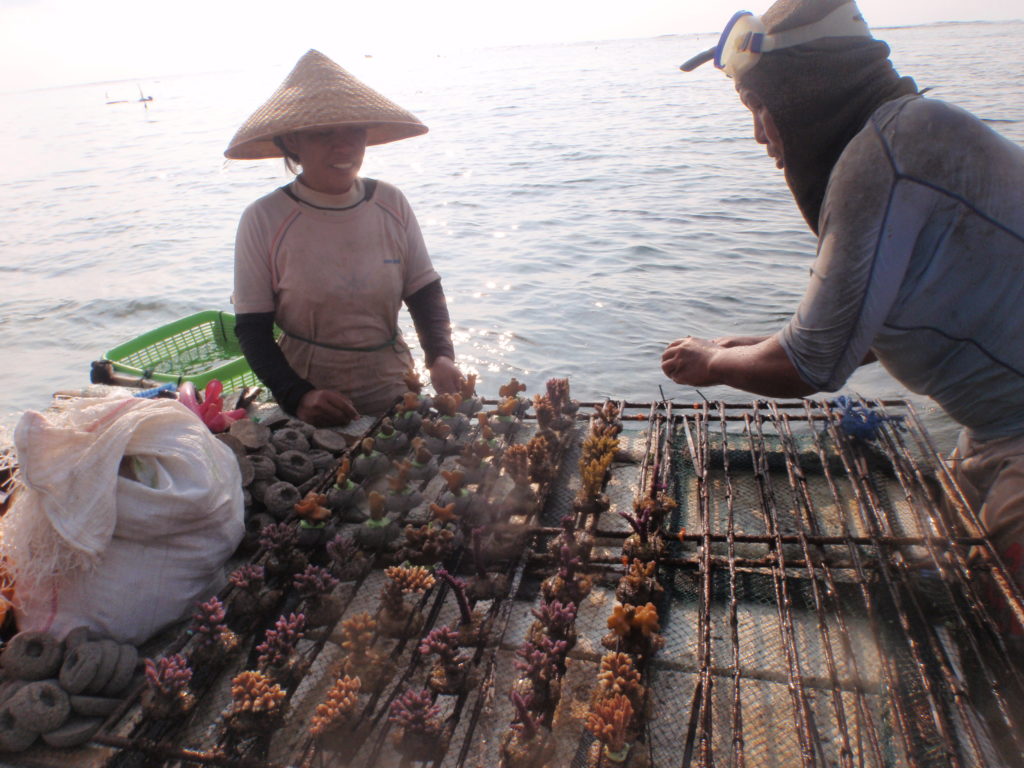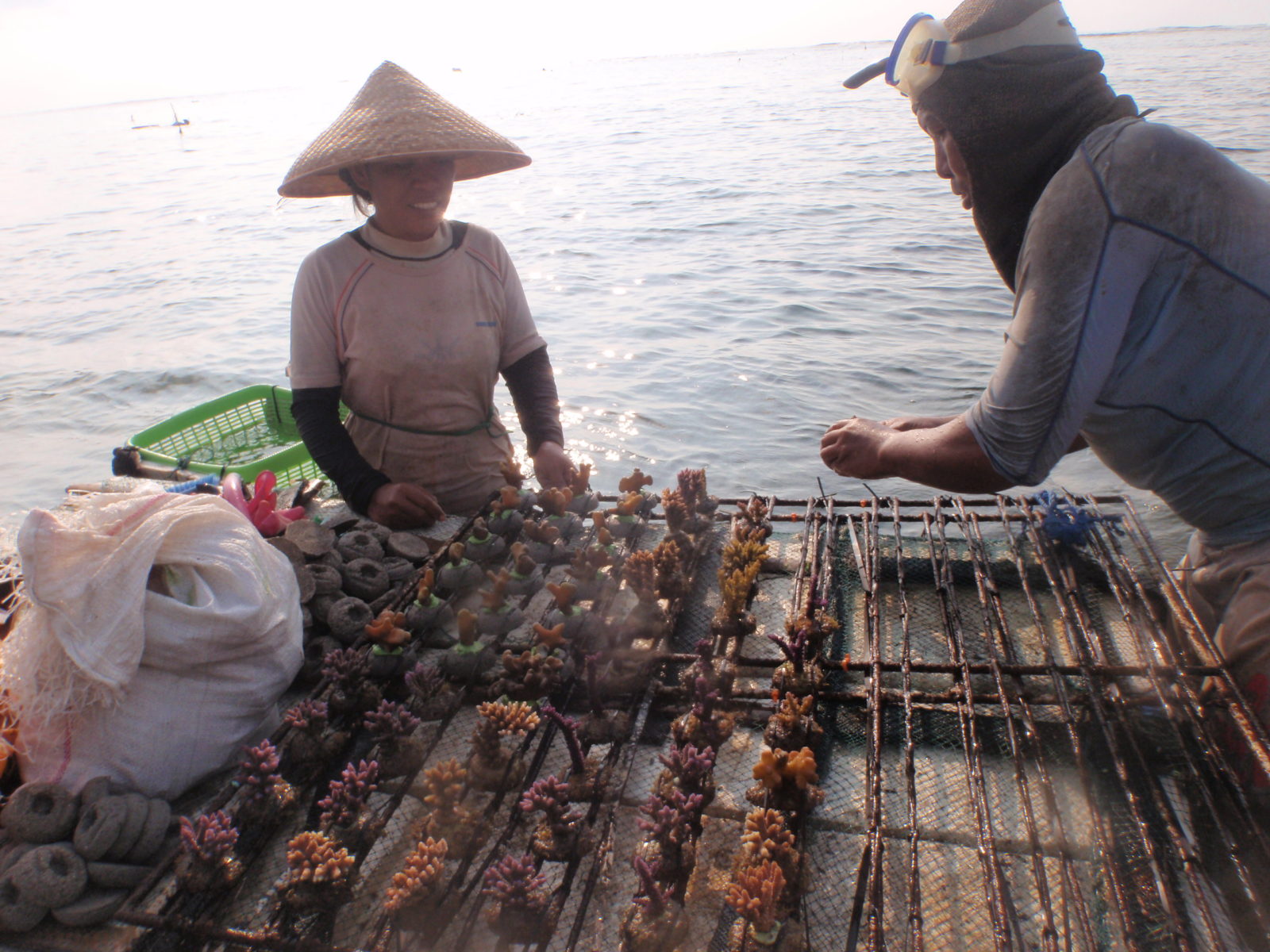We picture typical farming as plowing a field with a tractor; or something to that effect. But aquaculture operations as ours don’t work that way. We don’t till the ocean floor and we do not plant seeds. I am sure at some point someone tried that and failed miserably. Our process is a bit different and a coral farm shares only some similarities with the land based farming process. Let’s examine the process of growing life coral at a commercial scale right in the ocean.
The life cycle of the coral starts off with adult coral propagating by spawning larvae into the current. As part of the plankton the larvae would drift to far flung destinations where it could grow a new coral, if the conditions were suitable. This process worked for millions of years for the propagation of the species. For farming it is much to unreliable and random to yield any results. We at the coral farm use a process of fracturing where we break a larger coral into smaller pieces. What we know as “a coral” is in fact a colony of many animals. They share one common structure with a membrane but each polyp is a single animal. Broken apart, each part of the colony can continue to thrive and survive as a separate colony. So what we call a “mother coral” is not really a mother in a sense of heritage. It is a donor coral, if you will, that gives us the base to grow a number of separate colonies. We affix those small coral pieces on a special artificial stone and place them at the perfect water depth in a protected lagoon off the beaches. Once we start with one healthy coral we can propagate it and grow biological identical coral. Herein lies also a danger or pitfall of the process. Since the different coral colonies with one coral origin share common DNA, they might be susceptible in the same way to diseases. So we have to keep careful track how we propagate and which “ancestry” is where placed on our coral farm tables. Just as a farmer on Land carefully selects which animals to breed for optimal results, we have to keep track of our crop and make sure we keep biodiversity and avoid mono-cultures on our setup. So there are some similarities to a traditional farm. We work a lot in the outdoors just as a farmer. Our success is tied to nature and its whims. Severe weather can wipe out the fruits of our farming labor – just the same as on land. We are even under partial control of the Ministry of Environment and Forestry here in Indonesia. So in some sense under the same authority as farmers that cultivate rice fields. We are using nature and its abilities to further our commercial interest. But we also help prevent the destruction of reefs through harvesting wild coral; and part of our ‘home grown’ coral is used in marine restoration efforts. Its an interesting business and we are passionate about what we do. Its part of the Balinese tradition to live in balance and harmony with nature. We are farmers in the true sense. The only difference is that our tractor floats on the water and has a boat motor. So when you are relaxing at the beach in Bali sipping a Mai-tai and you see some busy folks on a small boat in the distance, wearing wide brimmed straw hats, it may be our team or some of our colleagues tending to their crop.


